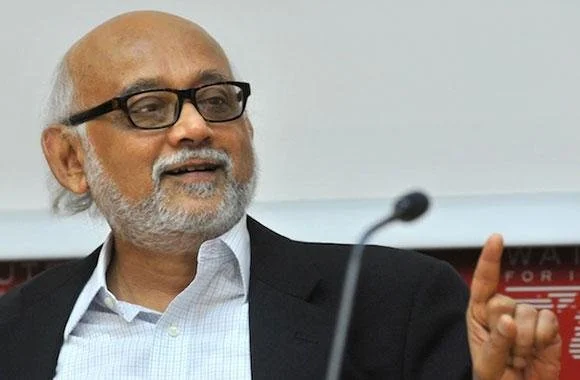The Grain of Sand Award
Honoring Creative & Sustained Scholarship from an Interpretive Perspective
William H. Sewell, Jr., the Frank P. Hixon Distinguished Service Professor Emeritus of History and Political Science at the University of Chicago, is the 2024 Grain of Sand Award Winner from the Interpretive Methodologies and Methods Related Group of the American Political Science Association.
The award honors a political scientist whose contributions to the interpretive study of the political has been longstanding and merits special recognition. Originally trained as a labor historian specializing in the period leading up to the French revolution, Sewell’s work has had wide impact on how scholars understand contentious politics, the history of ideas, the role of culture in historical change, the origins of capitalism, and social theory. In doing so, his work has had major impacts in multiple disciplines, including history, sociology, and political science. Consequently, few scholars in the discipline are as deserving of this recognition as Sewell.
Sewell’s first book, Work and Revolution in France: The Language of Labor from the Old Regime to 1848 (Cambridge UP 1980), is emblematic of Sewell’s influence across multiple disciplines. A foundational work in history’s “cultural turn,” the book showed the impact of changing ideas of liberty on the unfolding collapse of the ancien régime through the French Revolution and on to the insurrections of 1848. It challenged the claim that ideas and cultural practices were epiphenomenal to how and why revolutions take place. Early revolutions, Sewell observed, directly inspired later revolutions through the ideas and meaning-making practices that they propagated.
This concern with meaning-making practices and ideas would continue to shape Sewell’s work over the next four decades. In a later book, Rhetoric of Bourgeois Revolution: The Abbé Sieyes and "What Is the Third Estate? (Duke UP, 1994), Sewell showed the importance of rhetoric in creating new political possibilities. Revolutions are not merely the outcomes of material frustrations, Sewell showed; they are also exercises in imagination. Participants need to feel the possibility of change before they can enact it. Rhetoric is one of the ways change is made to feel possible. Yet, the Abbé Sieyes' rhetoric, and the vision it outlined, was filled with contradictions. These contradictions, Sewell argued, were reproduced in the revolutionary project itself, ultimately precipitating its collapse.
Sewell has carefully tracked how ideas and meaning-making practices are co-implicated with material, organizational, and social changes. In Capitalism and the Emergence of Civic Equality in Eighteenth-Century France (Chicago UP, 2021), Sewell documented how new notions of civic equality that helped fuel the French revolution were connected to profound changes in the structure of the French economy and society. As commercial capitalism became the organizing principle for economic life in 18th century France, it had the unintended effect of introducing a new form of commercial equality that made previously unimaginable ideas of civic equality thinkable in the otherwise profoundly hierarchical French society. Tracking this unfolding process over a myriad of different sites, Sewell demonstrated how emerging capitalism radically transformed the structure of society and the possibility for political agency that French subjects could imagine. This process ultimately allowed them to imagine themselves as citizens.
This concern with the relationship between structure and agency, and how scholars should study it, has been a hallmark of Sewell’s profoundly influential methodological work. Published across a variety of journals and collected in Logics of History: Social Theory and Social Transformation (University of Chicago Press, 2005), Sewell’s methodological writings have shown careful attention to the relationship between social structures, the agency of actors to change those structures, and the power of events to shift both. Where Sewell’s work on labor, revolution, culture, and ideas changed how an interdisciplinary group of scholars understand contentious politics, his work on structure and agency have changed how the disciplines understand unfolding historical processes and how to study them. In all these regards, Sewell’s work has itself been revolutionary.
Drawing inspiration from the opening lines of William Blake’s “Auguries of Innocence” and Wislawa Szymborska’s “View with a Grain of Sand,” the Grain of Sand Award honors a scholar whose contributions demonstrate creative and sustained engagement with questions of enduring political importance from an interpretive perspective. Echoing Szymborska’s “We call it a grain of sand,” the award underscores the centrality of meaning-making in both the constitution and study of the political; recalling Blake’s “To see a world in a grain of sand,” the award recognizes scholars who expand the capacity of interpretive scholarship to embody and inspire imaginative theorizing, while cultivating new lines of sight by enriching our literary and experiential resources and nourishing the playfulness of mind so necessary to the vitality of social science.
How to Nominate
Nominations for the 2025 Grain of Sand Award are currently open!
Nominations should include a copy of the nominee’s curriculum vitae and a minimum of two supporting letters summarizing the nominee’s contributions and explain the merit for this award. Please e-mail nomination materials (individually or as a unit) to the outgoing Committee chair no later than March 1 of each year.
The award will be announced and presented at the annual APSA conference during the business meeting or reception of the Interpretive Methodologies and Methods Conference-related Group (IMM).













